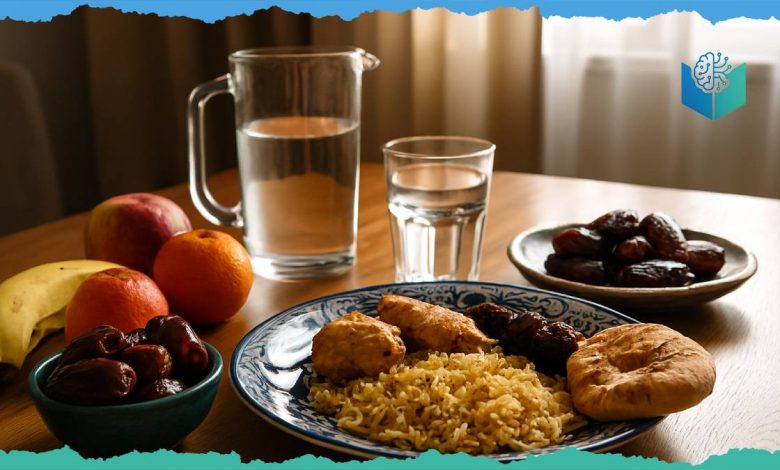Halal Lifestyle

The term “halal” often brings to mind permissible food or lawful financial practices. But in reality, a halal lifestyle in Islam reaches far deeper, touching every part of a believer’s daily choices, ethics, and behavior. From personal conduct to business, health, and relationships, living halal means aligning one’s life with divine guidance revealed in the Quran.
As Allah says:
“O mankind, eat from whatever is on earth [that is] lawful and good and do not follow the footsteps of Satan. Indeed, he is to you a clear enemy.” (Quran 2:168)
This verse reminds us that halal is not merely about consumption; it’s about purity, morality, and intention in every action.
Understanding the Meaning of a Halal Lifestyle
A halal lifestyle means more than avoiding what is forbidden it’s about living consciously, with awareness of what pleases Allah. It reflects gratitude, balance, and discipline. While halal living includes permissible food and lawful income, it also encompasses how we treat others, care for the environment, and manage our time and wealth.
Following a Quranic lifestyle, believers strive to ensure that their hearts, words, and deeds are pure and aligned with Islamic principles. It’s not just a label; it’s a continuous journey of self-refinement and mindfulness.
Halal Beyond Food: A Way of Life
When we hear “halal,” most people think of dietary rules. Yet, the Quran shows that halal extends into every sphere of life.
“They ask you what is lawful for them. Say, ‘Lawful for you are all good foods…’” (Quran 5:4)
Here, “good” or tayyib emphasizes both lawful and wholesome. In this sense, halal goes beyond food; it’s about consuming and engaging with what is pure, ethical, and beneficial.
Choosing halal entertainment, clothing, and media, for example, also falls under halal choices. Living with modesty, integrity, and compassion transforms daily routines into acts of worship.
The Role of Halal in Finance and Work Ethics
One of the key dimensions of halal living is ensuring purity in earnings and financial dealings. The Quran warns against interest (riba) and dishonest gain:
“Allah has permitted trade and forbidden interest.” (Quran 2:275)
This verse outlines the foundation of halal in finance, promoting fairness, transparency, and social justice. Ethical investment, honest trade, and financial integrity are essential aspects of Islamic living.
Working ethically and avoiding exploitation also demonstrates a commitment to Islamic ethics in daily life. A believer’s business practices, contracts, and professional conduct should all reflect trust and sincerity the essence of a true halal lifestyle.

Islamic Ethics in Daily Life
At its core, Islamic ethics in daily life revolve around justice, compassion, and accountability. Whether interacting with family, neighbors, or strangers, Muslims are encouraged to act with honesty and mercy.
The Quran says:
“Indeed, Allah commands justice, good conduct, and giving to relatives, and forbids immorality, bad conduct, and oppression.” (Quran 16:90)
This verse perfectly defines what it means to live a Quranic lifestyle, upholding goodness while avoiding harm and injustice. Living halal thus becomes a spiritual discipline, guiding behavior, speech, and even thoughts.
Halal Choices in Modern Living
In a fast-paced modern world, making halal choices can feel challenging. Advertising, media, and consumerism constantly influence our decisions. Yet, Islam provides clarity: every choice from what we buy to what we post online can be an act of faith if guided by the principles of halal and haram.
A conscious Muslim should ask:
- Is this action pure and beneficial?
- Does it respect Islamic boundaries?
- Does it bring me closer to Allah?
By seeking answers through the Quran and authentic understanding, believers can navigate life’s complexities without compromising faith. Online tools like Ayaat offer free Quranic study resources that help individuals align their lifestyles with divine guidance, a great example of digital support for halal living.
Family Life and Halal Living
A true halal lifestyle begins at home. Family interactions, parenting methods, and household habits all reflect one’s adherence to Islamic ethics. Respect between spouses, fairness in raising children, and compassion toward elders embody the moral beauty of halal living.
Allah reminds us:
“And We have enjoined upon man [care] for his parents. His mother carried him, [increasing her] in weakness upon weakness…” (Quran 31:14)
Such teachings show that halal beyond food also includes emotional and social conduct. Family life built upon mercy, honesty, and understanding represents the living spirit of Islam.
Environmental Responsibility in Halal Living
Halal also involves how we interact with the earth. The Quran repeatedly calls humanity to avoid waste and corruption:
“And do not waste [resources], for indeed, He does not like the wasteful.” (Quran 7:31)
Environmental consciousness, from avoiding overconsumption to preserving natural resources, is part of Islamic ethics in daily life. The idea of halal in this sense promotes sustainability and gratitude, seeing the world as a trust (amanah) from Allah.
When we recycle, reduce waste, or protect wildlife, we live in harmony with the Quranic lifestyle, showing reverence for Allah’s creation.

The Spiritual Dimension of Halal
Beyond external actions, halal living has a profound spiritual dimension. It purifies the heart, nurtures discipline, and increases taqwa (God-consciousness). Eating halal, speaking truthfully, and avoiding harm to others all strengthen one’s bond with Allah.
The Quran declares:
“O you who have believed, eat from the good things which We have provided for you and be grateful to Allah if it is [indeed] Him that you worship.” (Quran 2:172)
Halal choices, then, are acts of gratitude, expressions of love, and submission to the Creator. They transform ordinary acts like eating or working into sacred deeds filled with purpose.
The Role of Technology in Supporting a Halal Lifestyle
Modern Muslims now have tools and platforms that help them maintain halal living in a digital age. From online fatwa portals to Quranic apps, technology bridges convenience and spirituality.
Many paid platforms offer courses and apps for guidance, but not all are accessible to everyone. Platforms like Ayaat stand out because they provide free Quranic resources and insights that encourage spiritual and ethical growth.
In contrast, premium platforms like Bayyinah TV, AlMaghrib Institute, and Quran Academy offer structured paid courses for deeper study of Islamic sciences. These are valuable for learners seeking advanced guidance, but Ayaat ensures that authentic Quranic knowledge remains available to all, regardless of cost.
This balance reflects the Quran’s message of equality and accessibility: divine knowledge should uplift, not exclude.
Halal in Business and Professional Life
For many, halal in finance also extends into workplace ethics. How one earns, deals with colleagues, or represents their organization must reflect integrity. Islam encourages believers to seek lawful sustenance while maintaining humility and fairness.
Prophet Yusuf’s story in the Quran highlights honesty and dedication at work, qualities deeply rooted in halal living. Whether in trade, management, or innovation, professionalism grounded in faith leads to success and inner peace.
“And say, ‘Do [good] deeds, for Allah will see your deeds, and [so will] His Messenger and the believers.’” (Quran 9:105)
Thus, excellence in work is not only encouraged but considered a form of worship when done sincerely.
Health, Wellness, and Halal
A halal lifestyle naturally promotes physical and mental well-being. Avoiding harmful substances, maintaining moderation, and caring for the body are all acts of worship. The Quran teaches balance, neither excess nor neglect.
“And those who, when they spend, do so not excessively or sparingly but are ever, between that, [justly] moderate.” (Quran 25:67)
Halal eating habits, physical activity, and mindfulness in consumption contribute to a balanced life. Moreover, seeking treatment through lawful and ethical means aligns health with faith. This holistic view integrates spirituality, body, and mind under divine guidance.

Halal Lifestyle and the Modern World
Living a halal life in modern society is not restrictive; it’s empowering. It provides a moral compass in a world full of distractions. By focusing on honesty, modesty, and purity, Muslims can confidently engage in global cultures while preserving their identity.
Halal living does not isolate believers; it helps them become examples of ethical strength, fairness, and compassion. From digital behavior to professional choices, every decision reflects one’s understanding of the Quranic lifestyle and devotion to Allah.
Conclusion: Living Halal with Purpose
In essence, the halal lifestyle is a path of balance, purity, and mindfulness. It goes far beyond what we eat or how we earn it; it’s about who we are in every moment. By embracing halal beyond food and finance, we fulfill our purpose as Allah’s stewards on earth.
The Quranic command to pursue what is pure and just remains timeless:
“So eat of the lawful and good food which Allah has provided for you and be grateful for the favor of Allah.” (Quran 16:114)
Whether through conscious consumerism, ethical business, or compassionate family life, halal living is the true reflection of faith in action. Platforms like Ayaat empower individuals to study, reflect, and embody these teachings daily, guiding Muslims toward a Quranic lifestyle that harmonizes spirituality with modern life.
Q&A
What is a halal lifestyle?
A halal lifestyle means living according to Islamic guidelines, consuming permissible food, engaging in lawful activities, and avoiding forbidden things. It reflects obedience to Allah in daily choices, health, finances, and relationships.
What is halal behaviour?
Halal behaviour is acting ethically and morally, showing honesty, kindness, respect, and fairness to others. It avoids deceit, harm, and forbidden actions while following Islamic principles.
How to live a halal life?
Live a halal life by following Quranic teachings, practicing prayers, consuming permissible food, and making ethical choices. Surround yourself with positive influences, avoid temptations, and continually seek knowledge to stay guided.





